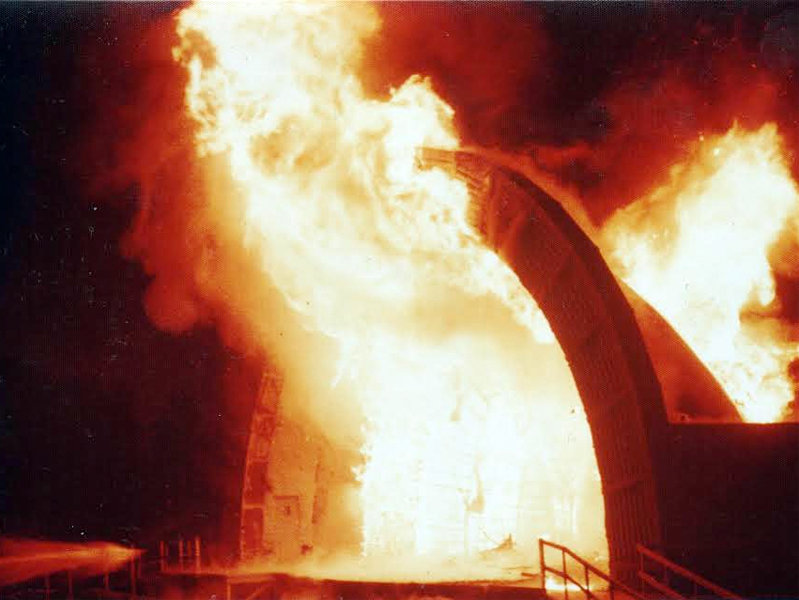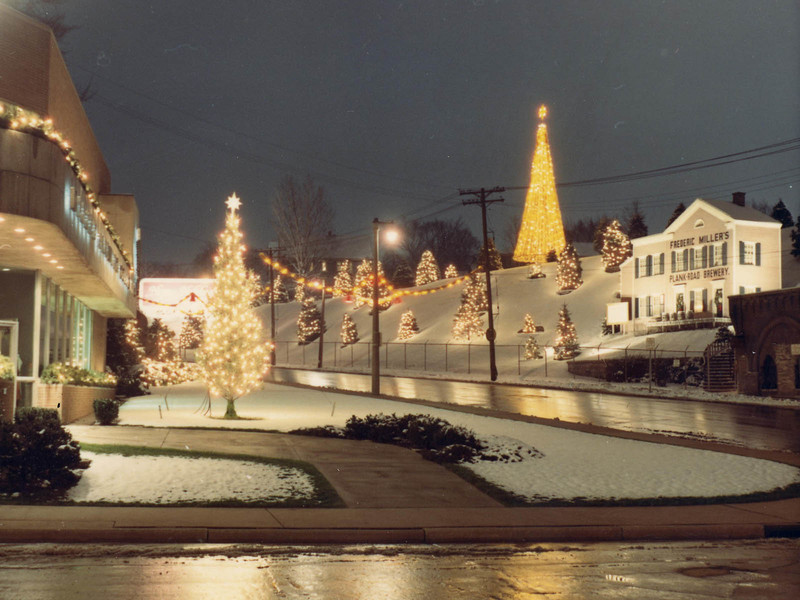As Milwaukee honors the life and work of Dr. Martin Luther King Jr. today, we look back at the occasions on which Dr. King spoke in Milwaukee in this story from the OnMilwaukee archives.
In his lifetime, in addition to a commitment to nonviolent protest, Dr. Martin Luther King Jr. was known for his splendid oratorical abilities and, especially, his remarkable landmark speeches about racism, segregation, equality and other issues key issues of the Civil Rights Movement. His words have become etched into the American psyche.
Dr. King spoke in Milwaukee on a couple occasions. His first speech here was delivered on Aug. 14, 1957 at the Grand Avenue Congregational Church (now the Irish Cultural and Heritage Center), 2133 W. Wisconsin Ave.
King was back on Aug. 20, 1959 to speak at the Milwaukee Auditorium, addressing the 34th annual National Bar Association convention, criticizing President Eisenhower for failing to speak out against segregation.
"I fear that future historians will have to record that when America came to its most progressive moment of creative fulfillment in the area of human relations," he said, "it was temporarily held back because it had a chief executive who refused to make a strong positive statement morally condemning segregation."
According to a report the following day in the Journal, "some 800 persons heard Mr. King. He was interrupted about 30 times by applause, and the audience stood and cheered at the end of his talk."
Dr. King returned on Jan. 27, 1964 for a standing-room-only event at the Milwaukee Auditorium (now the Miller High Life Theatre). According to newspaper reports, at the Auditorium Dr. King spoke to 6,300 Milwaukeeans for about 40 minutes after holding a press conference upon his arrival at Mitchell Field.
Here are some of the highlights:
-
King encouraged people to erase two myths: "Only time can solve the problems of racial integration" and "Civil Rights legislation is not important."
-
"It may be true that you cannot legislate morality but behavior can be regulated."
-
"Law cannot change the heart, but it can restrain the heartless. ... Law cannot make a man love me but it can keep him from lynching me."
-
"Time is neutral. It can be used either constructively or destructively ... We must help time and we must realize that the time is always right to do right."
-
"We have argued and discussed civil rights enough." He cautioned against getting "bogged down in the paralysis of analysis. ... This problem will not work itself out. Somebody must be dedicated. Somebody must be willing to stand up. There is a need for a sort of divine discontent."
-
"It takes a strong person to be nonviolent. It has a way of disarming the opposition. He doesn't know what to do. He doesn't know how to handle it."
-
"We will be able to hew out of the mountain of despair the stone of hope."
It is also interesting to note that the FBI reportedly contacted Marquette University on March 4, 1964, asking that the school not to bestow an honorary degree on Dr. King. He was, they said, affiliated with communists.
King also spoke at the UW-Milwaukee Union on Nov. 23, 1965:
Martin Luther King Jr. spoke at #UWM in 1965. Today, we celebrate his legacy and humanitarian efforts that inspired racial justice and equality through peacemaking and action. We commemorate Dr. King's dream of a diverse nation united in peace. #MLKDay pic.twitter.com/7wQOSh9kwK — UW-Milwaukee (@UWM) January 16, 2023
After King's assassination in April 1968, 15,000 people marched through the streets of Downtown Milwaukee. It remains the largest civil rights demonstration in city history and was among the biggest in the country at the time.
Born in Brooklyn, N.Y., where he lived until he was 17, Bobby received his BA-Mass Communications from UWM in 1989 and has lived in Walker's Point, Bay View, Enderis Park, South Milwaukee and on the East Side.
He has published three non-fiction books in Italy – including one about an event in Milwaukee history, which was published in the U.S. in autumn 2010. Four more books, all about Milwaukee, have been published by The History Press.
With his most recent band, The Yell Leaders, Bobby released four LPs and had a songs featured in episodes of TV's "Party of Five" and "Dawson's Creek," and films in Japan, South America and the U.S. The Yell Leaders were named the best unsigned band in their region by VH-1 as part of its Rock Across America 1998 Tour. Most recently, the band contributed tracks to a UK vinyl/CD tribute to the Redskins and collaborated on a track with Italian novelist Enrico Remmert.
He's produced three installments of the "OMCD" series of local music compilations for OnMilwaukee.com and in 2007 produced a CD of Italian music and poetry.
In 2005, he was awarded the City of Asti's (Italy) Journalism Prize for his work focusing on that area. He has also won awards from the Milwaukee Press Club.
He has be heard on 88Nine Radio Milwaukee talking about his "Urban Spelunking" series of stories, in that station's most popular podcast.







